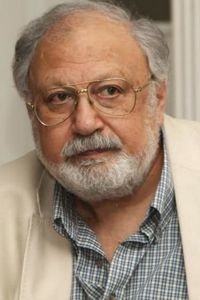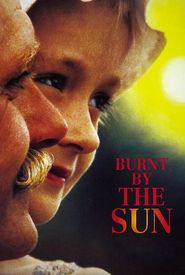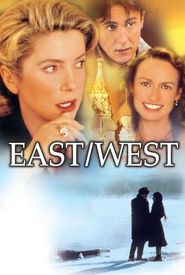Rustam Mammad Ibrahim oglu Ibragimbekov, a celebrated Soviet and Azerbaijani creative force, has etched his name in the annals of cinematic history as a masterful screenwriter, dramatist, and producer, his artistic prowess transcending geographical boundaries and resonating far beyond the confines of his native Azerbaijan and the former Soviet Union.
Born on February 5, 1939, in the vibrant city of Baku, which serves as the capital and largest city of Azerbaijan SSR, Rustam Ibragimbekov, a renowned filmmaker, made his entry into the world as the younger brother of Magsud Ibrahimbeyov, a distinguished Azerbaijani writer and politician. His father, a professor of art history, hailing from the historic city of Shamakhi, played a significant role in shaping Rustam's early years.
After completing his secondary education, Ibragimbekov pursued higher education at the prestigious Azerbaijan Oil and Chemistry Institute, where he earned his degree. His academic pursuits did not stop there, as he further honed his skills in script writing and film directing at the renowned Gerasimov Institute of Cinematography in Moscow, a premier institution for film education.
Ibragimbekov's remarkable trajectory as a writer has seen him craft an astonishing array of creative works, comprising over 40 film and television scripts, numerous plays, and written pieces of prose. Many of his scripts have undergone adaptation, transforming into full-length feature films or television productions. Throughout the 1970s and beyond, he has enjoyed a long-standing creative partnership with the esteemed director Nikita Mikhalkov.
Ibragimbekov's most notable and acclaimed literary creations encompass a diverse range of cinematic masterpieces, including the critically acclaimed film "Urga", which was directed by the renowned Russian filmmaker Mikhalkov and subsequently released in North America under the title "Close to Eden". This poignant and powerful film earned widespread recognition and accolades, including the prestigious Golden Lion Award at the esteemed Venice Film Festival and the Felix Award in Berlin as the Best European Film of the year. Furthermore, "Close to Eden" received a nomination for the American Film Academy Award, commonly referred to as an Oscar, in the category of Best Foreign Language Film, in 1995.
Another notable and award-winning film directed by Mikhalkov, and co-authored by Ibragimbekov, is "Burnt by the Sun", which received the Academy Award for Best Foreign Language Film in 1994. This cinematic masterpiece also garnered the Grand Prize of the Jury at the 47th Cannes International Film Festival, solidifying its status as a masterpiece of world cinema.
Ibragimbekov's literary endeavors have yielded numerous collected works, meticulously crafted and disseminated across Russia, Azerbaijan, and beyond the borders of these nations. In addition to his literary pursuits, he has also demonstrated his versatility as a playwright, penning over ten original theatre plays that have been brought to life on numerous stages. Moreover, Ibragimbekov's creative energies have been channeled into the realm of filmmaking, where he has taken the helm as director for several full-length feature films.
In the year two thousand and one, Ibragimbekov embarked upon a remarkable endeavor, establishing Ibrus, a vibrant cultural centre situated in the heart of Baku, which serves as a thriving theatre where captivating performances are brought to life through the medium of both Azeri and Russian languages.
As a visionary leader, Ibragimbekov currently holds the esteemed position of Chairman of the Confederation of Filmmakers' Unions, a prestigious organization that proudly represents the interests of filmmakers from all former Soviet republics, uniting them under a shared banner of creative expression.
Furthermore, Ibragimbekov assumes the role of Secretary of the Russian Filmmakers' Union, a position that affords him a unique platform to nurture and promote the artistic endeavors of Russian filmmakers.
In addition to his numerous responsibilities, Ibragimbekov is also an esteemed member of the European Film Academy, a prestigious institution that celebrates and supports the rich cultural heritage of European cinema.
Lastly, Ibragimbekov's impressive repertoire of accomplishments is further enhanced by his membership in the Academy of Motion Picture Arts and Sciences, a renowned organization that has been at the forefront of recognizing and honoring outstanding achievements in the world of film.
Ibragimbekov, a renowned cinematic virtuoso, divides his time between three cosmopolitan hubs - Baku, Moscow, and Los Angeles - as he continues to leave an indelible mark on the world of filmmaking, his impressive body of work a testament to his unwavering dedication and unbridled creativity.
Biography:
Ruslan Ibragimbekov is a celebrated Russian filmmaker, screenwriter, and producer, best known for his innovative storytelling and masterful direction. Born on January 11, 1944, in Baku, Azerbaijan, Ibragimbekov's early life was marked by a deep passion for the arts, which would eventually lead him to pursue a career in filmmaking.
After completing his studies at the Gerasimov Institute of Cinematography in Moscow, Ibragimbekov began his professional journey as a screenwriter, collaborating with some of the most prominent directors in the Soviet film industry. His breakthrough came with the 1985 film "White, White World," which earned him widespread critical acclaim and cemented his status as a rising star in the world of Russian cinema.
Throughout his illustrious career, Ibragimbekov has been recognized with numerous awards and accolades, including several Nika Awards, a Golden Eagle Award, and a special prize at the Moscow International Film Festival. His films have been showcased at prominent festivals around the world, including the Berlin International Film Festival, the Cannes Film Festival, and the Toronto International Film Festival.
Ibragimbekov's work is characterized by its unique blend of philosophical introspection, poetic imagery, and a deep understanding of the human condition. His films often explore themes of love, loss, and redemption, as well as the complexities of human relationships and the search for meaning in an often chaotic world.
Today, Ibragimbekov continues to be a driving force in the world of Russian cinema, inspiring a new generation of filmmakers with his innovative storytelling and unwavering commitment to his craft. Despite his many accomplishments, Ibragimbekov remains humble and dedicated to his art, forever seeking new ways to push the boundaries of cinematic storytelling and to explore the depths of the human experience.
























